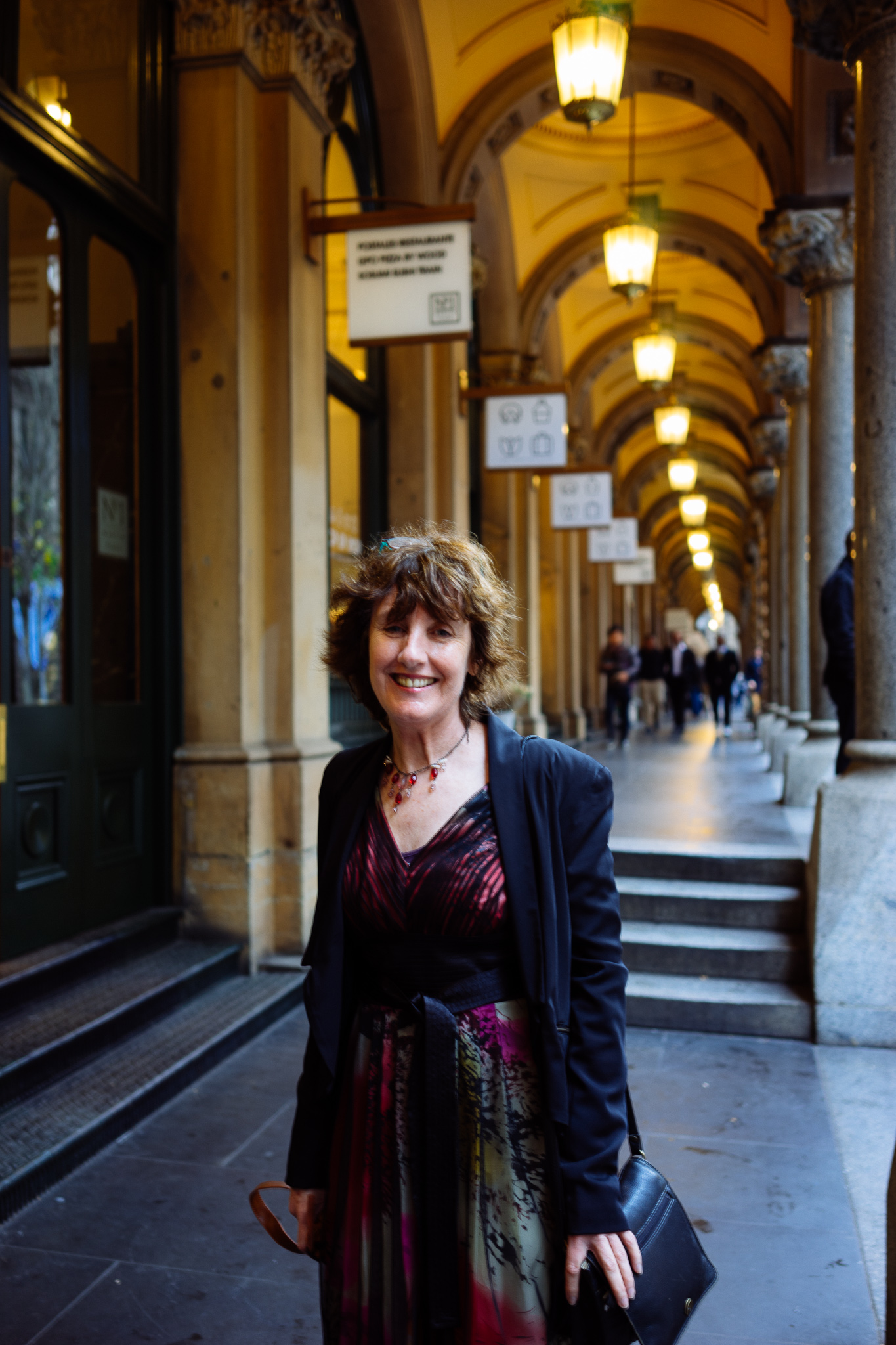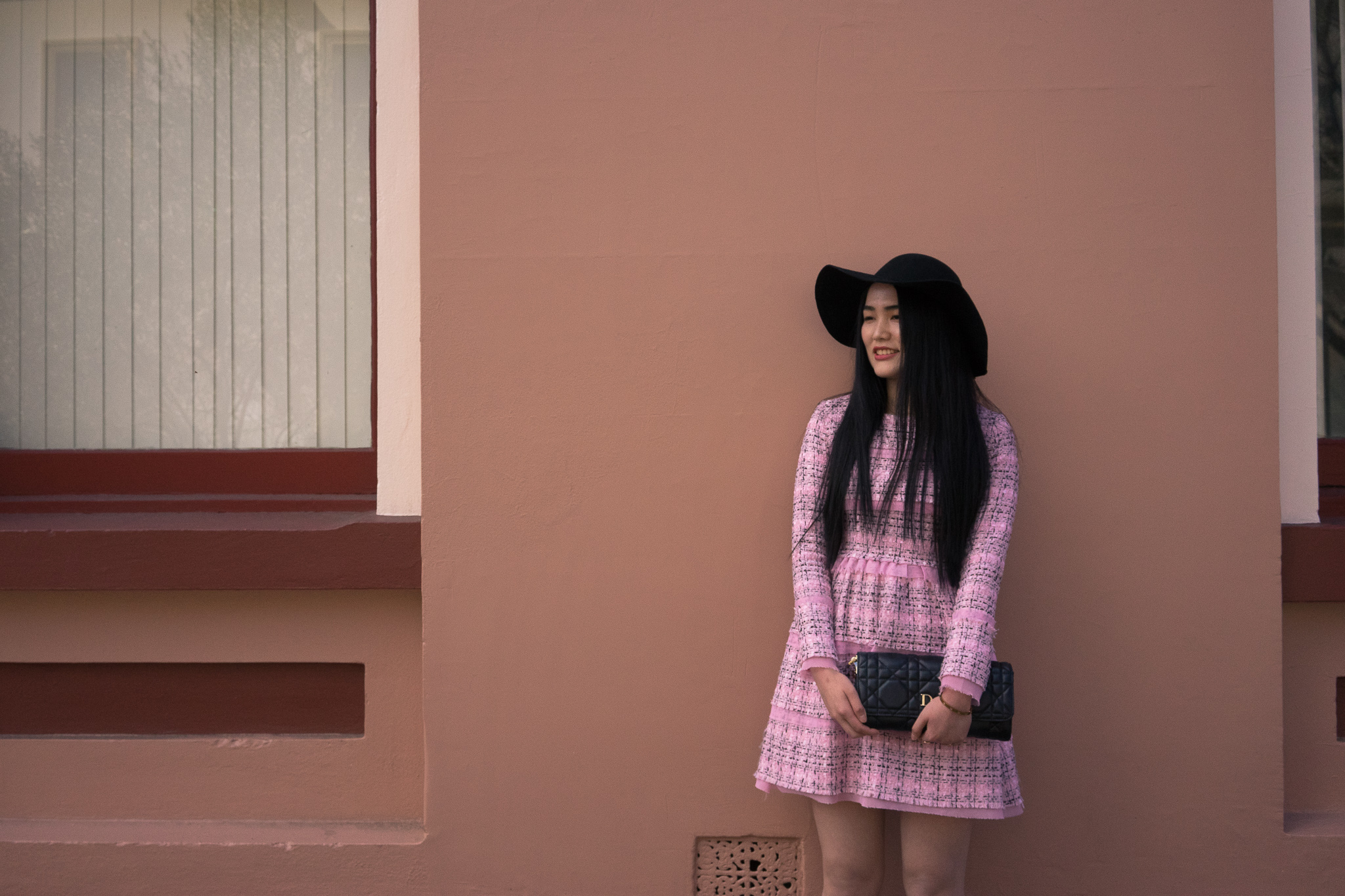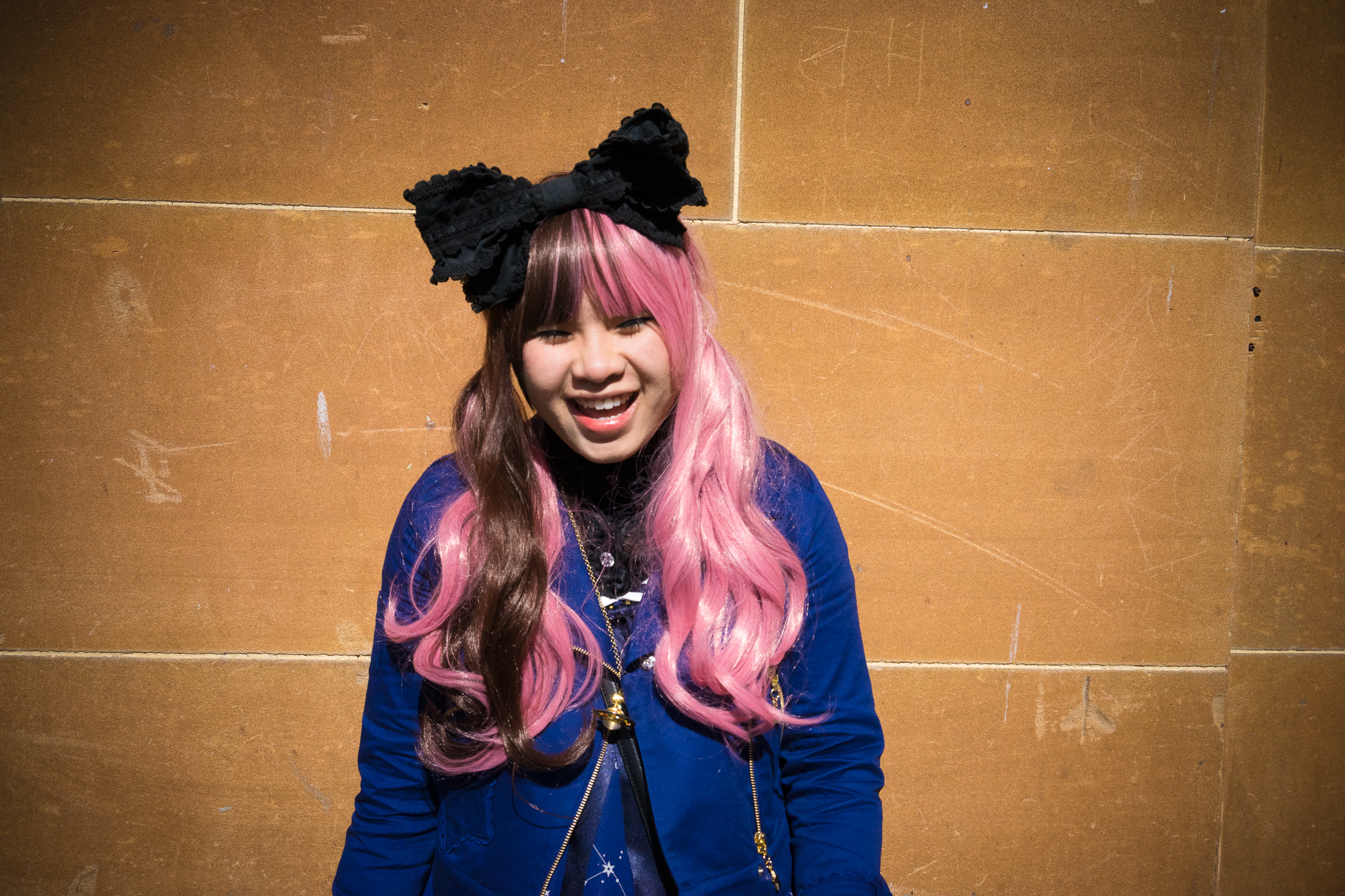Eric Kim's Beginner Street Photography Workshop
I know nothing about street photography
A couple weeks ago, I attended Eric Kim's street photography workshop in Sydney. I hemmed and hawed about it for ages when I first saw the Australian dates. A friend had recently attended the one in Seattle and thoroughly enjoyed it, but I wasn't certain if it would be worthwhile for me. Not only were there no local workshops, but I've never really attempted the genre. All I knew were the names Henri Cartier-Bresson and Vivian Maier, and I wasn't even familiar with their work.
I had stumbled upon a photography exhibit at The Met a few years ago. I forget which one now, but some of the images kindled an interest in urban landscape and a more observer style of street photography that seemed a bit more my speed. However, due to a combination of shyness, lack of practice and lack of research, I just couldn't get the results I wanted without feeling like I was intruding on a stranger. I had tried a few different approaches, but most made me feel like a creep, and usually resulted in blurry images anyway (shoot from the hip? *cringe*). A lot of it though was in my head. I would hesitate, or over analyse a composition before I would hit the shutter and the moment would be long gone. And even though I don't shoot film, I'm overly stingy with the shutter, trying to get things right the first time, and often failing to.
I'm terrible with strangers
I'd been following Eric's blog on and off for several years though, and was fascinated with the way these personalities were captured from such a close proximity. I simply didn't understand why he wasn't assaulted on a regular basis for taking these photos in what I imagined was well within someone else's personal space. Particularly when it was without permission. And I was terribly put off by some photographers known for their use of flash at night for street. It resulted in some amazing expressions of human vulnerability, but I also found it incredibly rude. So I dismissed it as a style that simply wouldn't work for me due to my introversion and general timidness with strangers.
What sold the workshop for me though, was my friend telling me about an exercise that Eric gave where you had to obtain a certain number of yeses and noes when asking for permission to take a photo. And if you didn't make quota for one, you had to keep going until you got it. The idea was terrifying, but incredibly intriguing. And it made perfect sense. Giving yourself permission to, and wanting to be rejected really changed the mindset of the whole experience. I felt anxious just thinking about having to do this and I hadn't even booked my spot yet. I decided to book the workshop and treat it, if nothing else, as a personal development course.
I learned that people aren't (always) scary
The group of workshoppers we had was diverse, and they were incredibly interesting and brilliant people. And while I have a lot of friends locally who are interested in photography, it was really inspirational to be with a bunch of people who have the same creative interests and objectives with whom you can engage in focussed conversation, critiques and just bounce ideas off each other. I like to think I made a few new friends, even if they're not ones I can go out on photowalks with on a regular basis as we're in different cities.
Also, the interactions I had with complete strangers I found for the most part really rewarding. I now understand part of why the Humans of New York guy does what he does. His photography, as many have said, isn't extraordinary, but I don't feel that's the point. The point is the connections with people who have lives and personalities just as intricate and complex as those of the people you actually know.

I met a lovely lady who had just won a scholarship. When I approached, she seemed really surprised, and asked why I chose her. In truth, Eric had nudged me to ask her, but I couldn't say "Er, my teacher made me." and I had to say something. The something I said was "Because you look nice and friendly." which was true. She asked me to send her a photo, and this was the best one I had. Unfortunately I hadn't realised I messed up my settings until some time after (ISO 64, wth), as I apparently fiddle with dials when I'm nervous. Even though I don't know her, I was really happy for her that she had earned this award, and felt kind of lucky to have happened upon her on this special day.
We also met a man with a cat on his arm. I didn't get a photo because I had set my camera on manual focus and couldn't change my settings in time, but my shooting partner and I asked him if we could take a photo of him and his cat. He said we'd have to ask the cat for permission because she's the boss. The cat consented and when we started photographing, she kept nuzzling his cheek, clearly demonstrating how she felt about him. On impulse, I said "Aren't you lovely. And so's the cat." and he said "Thank you. Nobody ever talks to me, they only ever talk to the cat." I was so surprised by this and told him I didn't understand why, because he's really quite nice himself. But in hindsight, I can see that people would only engage with the cat but not the person. Felt pretty sad and reflective about this. And it'll definitely change the way I think and approach people like this gent and his cat in future.
A couple of the workshoppers had what I would have felt was a pretty terrifying encounter with someone who started yelling at them for taking photos in public, and we had one guy come up to us and demanded that we delete any photos we have of him because he "can't afford to be photographed". I would have deleted any photos of people who didn't want to be photographed anyway, but this guy had an air of being slightly unhinged which was a little unnerving. Even with these less than great encounters though, I felt my experience with strangers that weekend was pretty positive.
Art is subjective
This isn't news. I did art in high-school and while we covered some of the masters, not all of them really resonated with me. I understood why they were elevated as they were, but sometimes it's just not 'your thing'. Similarly with photography. It's like the photographers who use flash at night for shock value. I understand and can appreciate the raw human expressions of surprise, but the means prevent me from truly loving the work. To paraphrase Eric, you don't have to like it, but can you appreciate why others do.

This photo was submitted as one of my top three for selection at the end of the workshop, and Eric selected it as the best of the three (another of the three is the next photo below). My top three weren't very good even in my opinion, but I felt I had made a lot of personal progress. Portraits of three strangers, all with permission, some up close.
Some of the others had said they really liked this one because of the colour, because the girl was pretty, because it was nicely framed (with a touch of cropping), and the details of the vent next to the girl complemented the texture of her dress. I thought it was kind of dull, at least in comparison with the next photo. The colour of the wall seemed a bit flat, and it just didn't grab me. The girl was fashionable, but I didn't feel I captured her uniqueness or personality. Though my feelings about this photo may be due to my failure to capture this moment to my expectations, whereas the others don't have that expectation about it.
And then there's the critical analysis aspect. ie. The photographer did this in order to convey that and the other. Some of it will be the photographer being deliberate, sometimes I'm pretty sure it's on a whim. It might also be in combination with some calculated spray and pray (see Magnum Contact Sheets) that paid off in editing. This isn't to say that the masters (or other photographers) are just lucky, because their ability to produce a body of work that is notable demonstrates their skill and perseverance. But I feel that sometimes the beauty is intuited rather than the result of careful calculation.
Even my English literature teacher told us of the metaphysical poets that the work is beautiful, that their command of language might have inspired generations of writers and creatives and lovers, but to be fair, the author probably wrote it to get into some girl's pants. It doesn't diminish the work, but it's a reminder that motivations aren't always lofty.
The key thing to me, is to understand what makes the images beautiful or poignant or inspiring. You don't need to analyse it to death, but try to grasp what it is about it that makes you feel the way you do, and how it engages you to form your interpretation of what you see. And use that information to inform your own work.
Remember that your subjects are human, too

We were heading into Newtown when we saw a group of cosplayers at Central, most of the group was engaged by our workshoppers, but one girl stood aside. We asked her if she would mind having her picture taken, and she said 'no'. We started asking her about her outfit, and what sort of meet they were heading to. She was shy and seemed nervous, but happily answered our questions. After a few minutes of conversation, we asked her again if she minded having her photo taken, and she said 'yes'.
Eric had told us before, that people are dressed this way because they want to be looked at. They won't mind having their photograph taken. And one of the workshoppers said they didn't understand why this girl said 'no' to begin with, when clearly she was dressed up to be seen.
One thing I think that's important to remember is that you can't make assumptions about why people do what they do. While goths or cosplayers will be dressed in a way which might be considered outlandish to most, every subculture will have different types of people in it. You'll get extroverts who may have the attitude of 'go big, or go home'. They want eyes on them, they want to have their photograph taken and generally, the attention. But you'll also get the introverts who are shy but like or empathise with the scene. Perhaps they just want to escape their current circumstances. They want to be involved, but not to the level where they're in the limelight. They understand they'll be looked at, but it doesn't mean that they're not reserved at the same time.
Case in point, this girl said her costume was more ordinary or conservative compared to the others. She knew she wouldn't be the centre of attention, but at least she'd be able to participate. You could also tell from her body language that she was nervous and shy. Her eyes were always cast downwards, she had a nervous laugh, and she didn't stand in a way that put herself out there.
"The problem with stereotypes is not that they are untrue, but that they are incomplete. They make one story become the only story.” ― Chimamanda Ngozi Adichie
Just because someone appears to put themselves out there to be seen, be they goth, cosplayer, prostitute, or your average pedestrian, be compassionate. They're not just your subject, they're people too, with feelings, fears and insecurities.
I learned a lot, and had fun
On the whole, I really enjoyed this course. I did what I intended and feel I took a step towards being more confident, not just with strangers, but with photography in general. We'll see whether I can put what I've learned into practice, but I think I've made positive progress in becoming better at this whole photography thing.
I'm admittedly still a bit on the fence about how much I'll pursue street photography as a genre, but I want to spend more time with it to get a feel for whether I'll stick with this style. Regardless, I know what I've learned will inform what I'll do in future, and aside from the confidence with strangers thing, I've come away with a 'people are actually pretty fabulous' feeling, which is pretty inspirational in itself.
I have lots more to learn
But I still have some work to do. Eric had told me that my objectives were to get comfortable getting permission, and to also shoot from no farther than two arm-lengths away without permission. I don't feel I succeeded at the latter, and definitely feel that's far more intimidating than asking for permission now, but it'll be something I'll be keeping in mind when I go out for the purpose of photography.
I also need to learn more about the masters, and get a feel for whose work engages me, whose aesthetic I aspire to, and what sort of styles I would like to experiment with. There's a bunch of research to do, but to me, that's part of the fun.
I'll be keen to do the intermediate and advanced workshops in future, and would recommend anyone who has the opportunity to attend one of Eric's workshops to go ahead and do it.
[1] Many years ago, my mother, hoping to accelerate the blossoming of my confidence, forced a 'how to make small talk' self-development course on me. I learned some tools to help with this, but apparently circumstances never arose where I felt the need to put them to use. That is until my recent honeymoon where we were faced with open seating for dining on a two week river-cruise. I didn't think about this at the time, but as the prospect of having to make conversation with strangers for two weeks straight drew nearer, my heart would race at the thought. However, miraculously, self-preservation kicked in and I felt like I was Small-Talk Queen for that two week period. I spoke to strangers, learned things about them, even remembered most of their names. Even my husband was surprised at how well I was doing at this talking thing. I mentally awarded myself a little gold star merit award for Most Improved Shy Person. Score.
